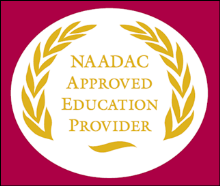Human Services
The Human Services (HSERV) program prepares students for employment in a broad range of social service agencies. Typical job titles include substance use disorder treatment counselors, residential treatment workers, case managers, and outreach and community workers. The program has a core of courses that all students must complete for the Associate in Applied Science (AAS) Degree with either a Generalist or Substance Use Disorder (SUD) Counseling emphasis. By their second quarter, students determine which HSERV emphasis they will pursue. Students must enroll in HSERV 198 Pre-Practicum Seminar, which prepares them for practicum (work-based experience) in an agency. After a student’s first quarter, the HSERV full-time faculty will serve as the students’ advisors for subject matter needs, and the counseling and advising office will remain as the advisor for all other needs.
The Human Services program includes classroom training in counseling, ethics, case management, substance abuse treatment, and crisis intervention, among others. An agency-based practicum experience is also required. Many courses are offered sequentially, and students are expected to take courses in sequence.
Students who are interested in transferring to a four-year college should see a counselor for schedule planning. A Human Services faculty advisor can support with subject matter expertise needs. Please note that this is a Professional/Technical program that does not offer a standard transfer degree. However, the program does have articulation agreements and transfer options with Fairhaven College at WWU, Evergreen College, and Trinity Western. For information on SVC articulation agreements with university programs, see the Associate in Applied Science degree information below. For information about the Substance Use Disorder (SUD) Counseling emphasis, contact is Rose Ness, at 360.416.7705. Rose is the contact for students interested in earning an AAS degree as well as for returning students who have already earned college degrees and who are interested in taking coursework necessary to become an SUD professional. For information about the Generalist emphasis, contact the department chair, Claudia Avendaño-Ibarra, at 360.416.7749.
General Education Learning Outcomes
Graduates of the Human Services program will be able to:
- Demonstrate an understanding of the nature and treatment of addiction and psychopathology.
- Effectively work with consumers using ethical practice.
- Demonstrate capability in case management tasks.
Program Admissions
Please apply at Enrollment Services. Students may enter the program at the beginning of any quarter. All students entering the Human Services program must take the college placement test. This can be arranged by contacting Enrollment Services.
Certification/Licensure
The SUD Counseling certificate and AAS degree meet the education requirements set by the Washington State Department of Health for graduates to become a SUD Professional Trainee. Additional hours of clinical practice and passage of an examination by the National Association of Alcoholism and Drug Abuse Counselors (NAADAC) or other certified organization are required before graduates may earn their Washington Substance Use Disorder Professional (SUDP) credential. A list of states that have substantially equivalent licensure requirements may be found on the Washington Department of Health website.
Faculty and Staff
Claudia Avendaño-Ibarra
Department Chair
360.416.7749
claudia.avendano-ibarra@skagit.edu
Rose Ness (she/her)
Human Services Faculty
360.416.7705
rose.ness@skagit.edu
Quick Links:
View All Degrees / Certificates

The Skagit Valley College Human Services Program is an approved academic provider through the NAADAC—National Association for Addiction Professionals. This status identifies the program as meeting nationally approved standards of education developed for the alcoholism and drug abuse counseling field.
Program participants are assured that the contact hours or CEUs provided will be accepted toward national credentialing by the NAADAC.